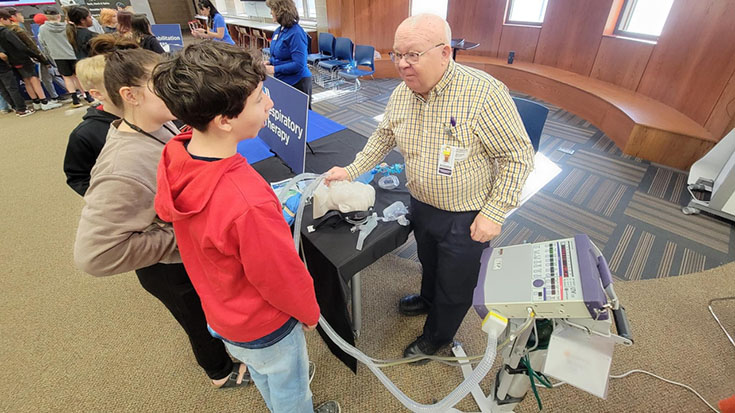
No manager wants to sit down with a staff member and tell him something he knows that the staff member does not want to hear.
But the reality is, sometimes managers have to do just that — either because the employee has engaged in behavior unbefitting the department or has asked for something the manager just can’t deliver.
What’s the best way to go about having one of these difficult discussions with staff?
AARC member Skip Bangley, RRT, manager of the respiratory care department at Vidant Medical Center in Greenville, NC, has some great advice.
Trigger points
According to Bangley, the best way to get started is to first assure yourself that you truly understand why the message that you will soon be conveying to the staff member is necessary.
“As you prepare, take time to develop a comfort level of your own with the decision and study what trigger points the staff may have as you meet with them,” he said.
In many cases, the trigger points likely to be set off in the staff member during your talk may be some of the same trigger points you experienced when you first learned of the news that led you to request the meeting with the staff member in the first place.
For example, a staff member who is being brought in because she has failed to show up on time for her last five shifts may be angry that no one understands that she was late because her husband was out of town and she had to drop her son off at school.
As manager, you may also be angry because you had to scramble to cover her patients with other staff members while you were waiting for her to show up.
Keep an open mind
Bangley says it’s best to tamp those feelings down and begin the discussion with as much of an open mind as you can muster.
“Enter the conversation with an empathetic mindset; however, stay on point with the message and direct in your answers,” he advised.
He believes it’s essential to remain confident in your decisions surrounding the issue too.
“Do not downplay or sugarcoat the message to make yourself feel better; it will only affect your message and leadership through the conversation,” he said.
It’s a good idea to give the staff member time to express his feeling about the situation as well, but he warns against letting the employee take over the discussion.
“Do not allow rabbit hole conversations to start by redirecting the person back to topic,” Bangley said. ”At the same time, allow for quiet time for the person to be able to reflect. We do not like silence; however, a little quiet time helps the person gather their thoughts in a calm manner.”
Whatever you do, don’t allow yourself to be swept up into the emotions that may be raging in the room. Getting into an argument with the staff member about the situation will come to no good, nor should you overstate or embellish the situation to your favor.
Go for a good ending
“End the conversation with a view of the future state,” Bangley said. “If the job is being terminated, I end with a sincere, ‘I wish you well in the future.’ If the position or duties are changing, I give examples of how this change will enhance job growth for the person.”
Following these bits of advice should make the next difficult conversation you are forced to enter into a little easier — hopefully for you as manager, and your staff member as well.
Email newsroom@aarc.org with questions or comments, we’d love to hear from you.















